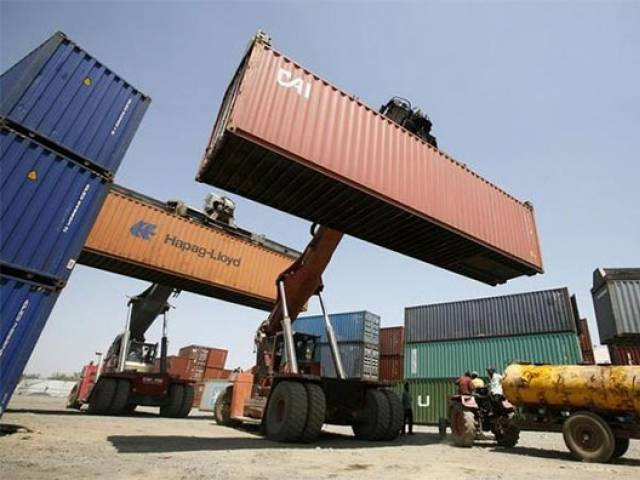Signing FTAs: Weak negotiations have led to disastrous results
Ministry of Commerce says it will now add factors before signing agreements

Ministry of Commerce says it will now add factors before signing agreements. PHOTO: FILE
A senior officer told The Express Tribune that unfavourable tariff lines in the FTAs have had many negative implications for Pakistan considering the lopsided balance of trade, which emerged soon after.
Bilateral trade: Progress made on Pakistan-Turkey FTA
Now, additional attention is given to two factors - possible future developments within the countries that trade agreements are to be signed with and thorough consultation with trade bodies.
The officer mentioned that since 2006, when an FTA was signed with China, many developments have occurred that were not accounted for.
Firstly, Pakistan suffered from the worst energy crisis that meant that the country couldn’t manufacture value added exports as per initial estimates - and lack of value added exports meant many of the concessions from the trade agreements went unused from Pakistan’s side.
Secondly, China had signed many FTAs with other countries, particularly with the Association of Southeast Asian Nations (ASEAN), which eroded the edge given to Pakistani goods as a result of the FTA.
“Such possible developments were never kept in mind while negotiating the previous FTAs and it is the reason that we are negotiating for the second phase to resettle the tariff lines,” said the officer.
Talking numbers
China-Pakistan Free Trade Agreement (CPFTA) for ‘trade in goods’, was signed on Nov 24, 2006 and was implemented from July 1, 2007. FTA for ‘trade in services’ was signed on Feb 21, 2009 and became operational from Oct 10, 2009.
Pakistan-Korea: Countries reach consensus on FTA
Pakistan-China volume of trade, which was hovered around $4 billion in the year 2006-07, surged to $12 billion in 2014-15. Pakistan’s exports have reached $2.1 billion in 2014-15 from $575 million in 2006-07. Correspondingly, China’s exports to Pakistan have increased to $10.1 billion in 2014-15 from $3.5 billion in 2006-07, which shows that the FTA has favoured China.
During first three years of implementation of Phase-I, both sides reduced tariffs on nearly 36% tariff lines to zero duty. Review of the first Phase of CPFTA has revealed that Pakistan could not utilise the concessions granted by China, Pakistan could only export in 253 tariff lines, where average export value was $500 or more, which is around 3.3% of the total tariff lines (7,550) for which China granted concessions to Pakistan.
Value addition
Considering trade with China, Pakistan mainly exported raw materials and intermediate products. Value added products were almost entirely missing. However, some of the value added products like garments are included in the concessionary regime.

Pakistan’s major exports to China are cotton yarn /fabric, rice, raw hides and skins, crude vegetable material, chemical material, fish and fish preparations and crude mineral etc. Meanwhile major imports from China are machinery (all sorts) and its parts, manufactured fertiliser, chemical element, yarn and thread of synthetic fibre, iron and steels, chemical material and product, vegetable and synthetic textile fibre, road vehicles and their parts, non-ferrous metals, tyres and tubes of rubber etc.
Pakistan’s FTAs have borne no fruit so far
Pakistan secured market access on products of immediate export interest like cotton fabrics, blended fabrics, synthetic yarn and fabrics, knit fabrics, home textiles, minerals, sports goods, cutlery, surgical goods, kinnow, mangoes, industrial alcohol, etc.
Phase II
The Phase II of the FTA with China was supposed to commence from the sixth year of the enforcement of the first. By the end of second phase both sides would have to reduce tariffs on 90% tariff lines to zero per cent duty.
For the purpose of finalising the second phase, Pakistan and China began negotiating the second phase of Pak-China FTA in 2011.
In the pipeline
Currently, Pakistan is pursuing FTAs with Turkey and Thailand as many rounds of negotiations in this regards have been held to finalise the drafts.
Pakistan has also sent the first draft for an FTA to the Iranian authorities for their input, which was agreed upon by the two countries during the visit of Iranian President to Pakistan in March this year.
The officer said that keeping in view past negotiations, commerce ministry is extensively consulting the trade bodies for incorporating their inputs in the FTAs.
In this regard many rounds with trade bodies have also been held and a seminar is scheduled in September in Karachi to better understand the business community’s views on trade concessions and how should they be given and to what category of goods.
“These consultations will strengthen our negotiation and ultimately the draft documents,” the officer.
The writer is a staff correspondent
Published in The Express Tribune, August 15th, 2016.
Like Business on Facebook, follow @TribuneBiz on Twitter to stay informed and join in the conversation.





1710175205-0/image-(9)1710175205-0-208x130.webp)













COMMENTS
Comments are moderated and generally will be posted if they are on-topic and not abusive.
For more information, please see our Comments FAQ